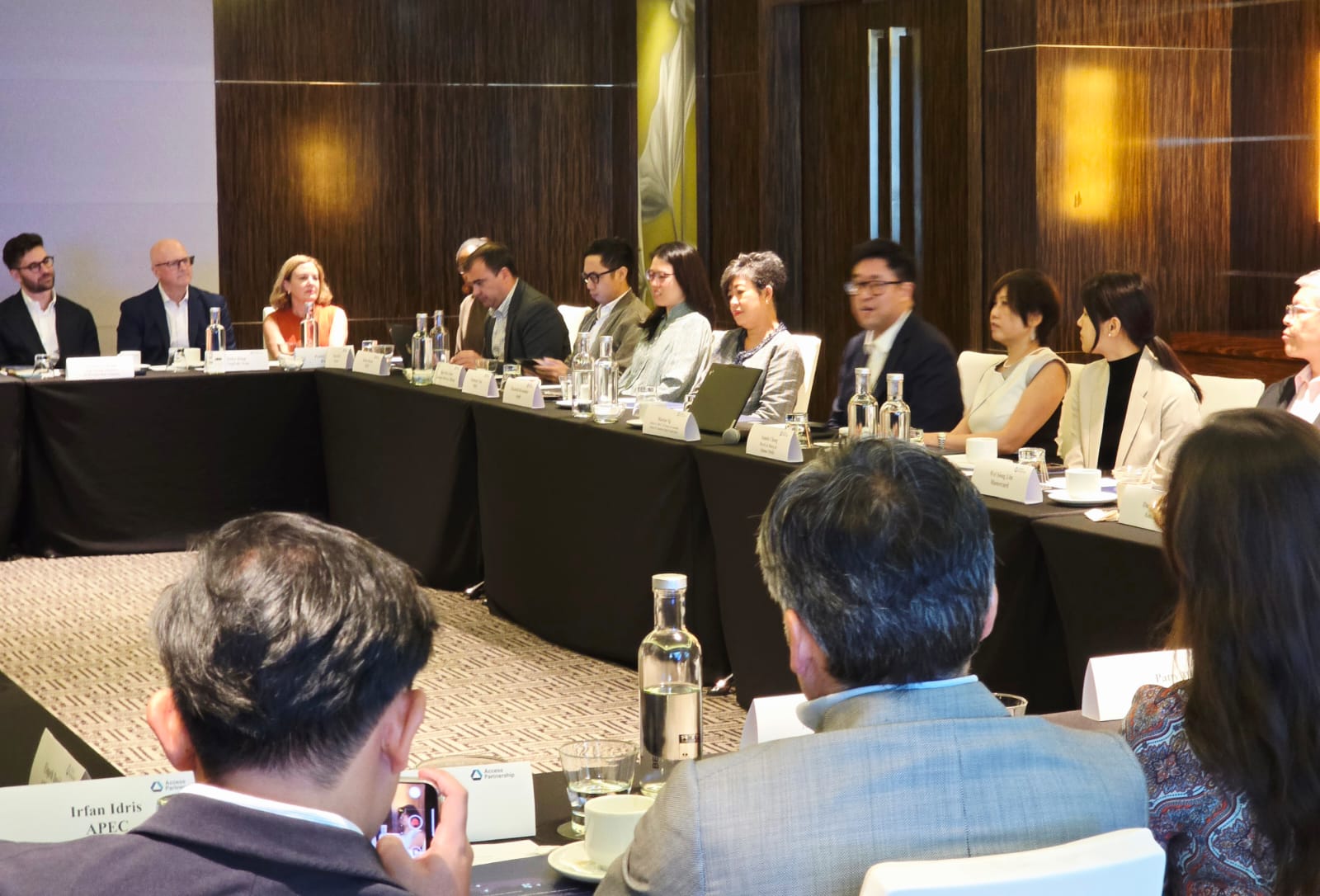In 2026 China hosts the Asia-Pacific Economic Cooperation (APEC). How can APEC remain relevant and effective for the private sector against a backdrop of rising geopolitical complexity?
Access Partnership convened a roundtable in Singapore to explore this question with the APEC Secretariat and leading voices from the business community.
What did they find?
That APEC can remain relevant and effective by:
1. Incubating ideas and delivering practical, business-enabling projects.
APEC is one of the few forums where the United States and China maintain a structured economic dialogue. With China hosting in 2026, APEC will play a more central function for regional engagement on business-enabling policies. Further, APEC’s role as an ‘incubator of ideas’ will be reinforced, given stalled progress at the World Trade Organisation (WTO). Through targeted, collaborative, and incremental APEC projects, tangible progress on certain private sector priorities can be made.
2. Tackling non-tariff barriers and advancing trade facilitation.
The Chemical Dialogue and Regulatory Harmonisation Steering Committee (for medical products) were cited as examples of how APEC successfully streamlines and converges regulatory procedures in highly regulated sectors, thereby reducing non-tariff barriers. Both do so by bringing together the private sector and regulators to align on priority areas of focus and, in the case of medical products, through key performance indicators agreed upon by both sides. APEC also has a strong track record in trade facilitation. Trade is now more complex with more fees, tariffs, enforcement, and data requested by customs officials. APEC can continue to be relevant by providing trade facilitation capacity building, for example in rules of origin.
3. Creatively advancing digital priorities.
Attendees were clear-eyed about the challenges related to making progress on certain digital issues, such as cross-border data flows. At the same time, they noted that there is scope for progress on digital services trade, cross border payments, interoperability of standards (such as in messaging), and fintech. Further, addressing digital issues through a sectoral lens, such as through a recently approved project on health data, may prove more fruitful.
4. Ensuring continued robust private sector engagement.
Deep collaboration between governments and industry was repeatedly emphasised to identify practical solutions. This includes engagement in APEC’s numerous technical-level working groups, through the APEC Business Advisory Council (ABAC), and at numerous public-private policy dialogues. Participants stressed the importance of early alignment among private sector actors across key economies on policy areas to bring to APEC as a key success factor for private sector engagement.
Resources shared at the event
- RHSC KPIs Infographic, outlining key performance indicators for regulatory convergence for drug and vaccine approvals.
- Chemical Dialogue: Risk Assessment Policy Tools, highlighting efforts to address non-tariff barriers in the chemicals sector.
- State of APEC Supply Chains report, providing insights on supply chain resilience across the region.
- Promoting the Utilization of Paperless Trade Platforms in the Post COVID-19 Era report, exploring advances in digital trade facilitation.
While China’s priorities as 2026 hosts have yet to be announced, connectivity, supply chain resilience, avoiding the middle-income trap, and addressing demographic shifts emerged as potential focal points.
At Access Partnership, we specialise in facilitating coordination between the public, private, and multilateral sectors. With a long-standing relationship with APEC, we continue to work closely with key stakeholders to advance public and private sector priorities. To find out how we can support you succeed, please get in touch.


Authors







